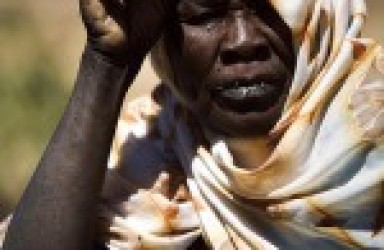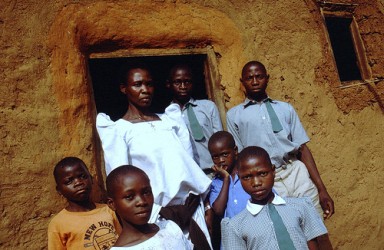The Relationship between the Spread of HIV/AIDS and Inequality in Africa
HIV/AIDS a poses serious threat to public health around the globe. Africa in particular has suffered from the ravages of HIV/AIDS for decades and attempts at containing and eradicating the disease have missed important groups within African society.
In the Post-9/11 Era is “The Responsibility to Protect” Irrelevant?
The responsibility to protect individuals from violations of their human rights around the world has been a movement increasing in intensity since the end of the Cold War. Since 9/11, the responsibility to protect has perished, and its corpse is now being used as a disguise for self-interest and self-security
A Liberal Structure for Realist Uses: International Development and the Question of Whose Interests Are Being Met?
International development is merely another tool in the proverbial toolbox of statesmen and global actors. It is an effective way to create the conditions necessary to best secure one’s interests.
Does Foreign Aid Benefit the Poor? Discuss Using Any Case in Africa as Illustration
In 2009, there is an estimated 1.4 billion people worldwide living on less than US$1 per day or in other words, in “absolute poverty”. Every year, at least 15 million children perish from starvation, a problem that would cost a mere US$13 billion to fix, yet these figures have been increasing over the past five decades.
Underdog Emerging: Cambodia’s Development in the 21st Century
Small developing countries that have been historically caught up in great power politics often seem to be exotic destinations for travel books rather than concrete places. Cambodia is one such example. As an insignificant part of the international system, it is difficult to appreciate what is happening there without seeing it for yourself. But Cambodia is a microcosm of development, and the changes that are happening there by no means trivial.
Women and Microfinance: A Route to Poverty Reduction?
The first part this essay introduces the concept of microfinance and the rationale behind targeting women, which is critically examined. The second part looks at the impact of microfinance initiatives on poverty alleviation. Drawing on examples from some African and Asian countries, the argument is built on the examination of two dimensions of poverty, namely income generation and empowerment.
Precise Definitions of Poverty: The Pros and Cons in Latin American Poverty Reduction
The way policy makers define poverty dictates the types of strategies that they use for alleviation, and their success. In Latin America numerous definitions have been employed, the current favourite being the profiling approach. This essay examines the various definitions of poverty on offer to Latin America, and the problems associated with each of them.
Better Poverty Reduction in Global Governance?
This paper will evaluate and analyse the poverty alleviation strategies manifested by the World Bank, United Nations Development Programme (UNDP), and the International Monetary Fund (IMF), explaining how they have converged over time. With the use of case studies it will argue that, whilst it might seem that the convergence has benefited poverty reduction, this is in fact not the case.
“The Most Successful Developing Economies Are Characterised By Greater Trade Openness.” Discuss
This paper agrees with the opinion that trade is an essential tool, which helps developing economies industrialise. However by using case studies, empirical data and analysing the adopted polices of the successful developing economies, this paper will support the argument that the most successful developing economies, developed under a more protectionist environment. Having completed this evaluation, the paper will then look at the policy implications of the conclusions made.
The Overarching Dilemma Of Aid Is That It Is Needed Most In Those Countries In Which The Prospects For Its Being Most Effective Are The Poorest. Discuss
Donors are distributing foreign aid, to certain poor countries only. The most prominent justification for this policy action is as the statement suggests, ‘the prospects for aid being most effective are the poorest’ in these countries. This paper will ascertain how donors have come to reach this development policy, by analyzing the evolving theories and trends of aid. However it will also suggest that the justification, on which the current policy agenda is set, is not founded upon robust assumptions.









